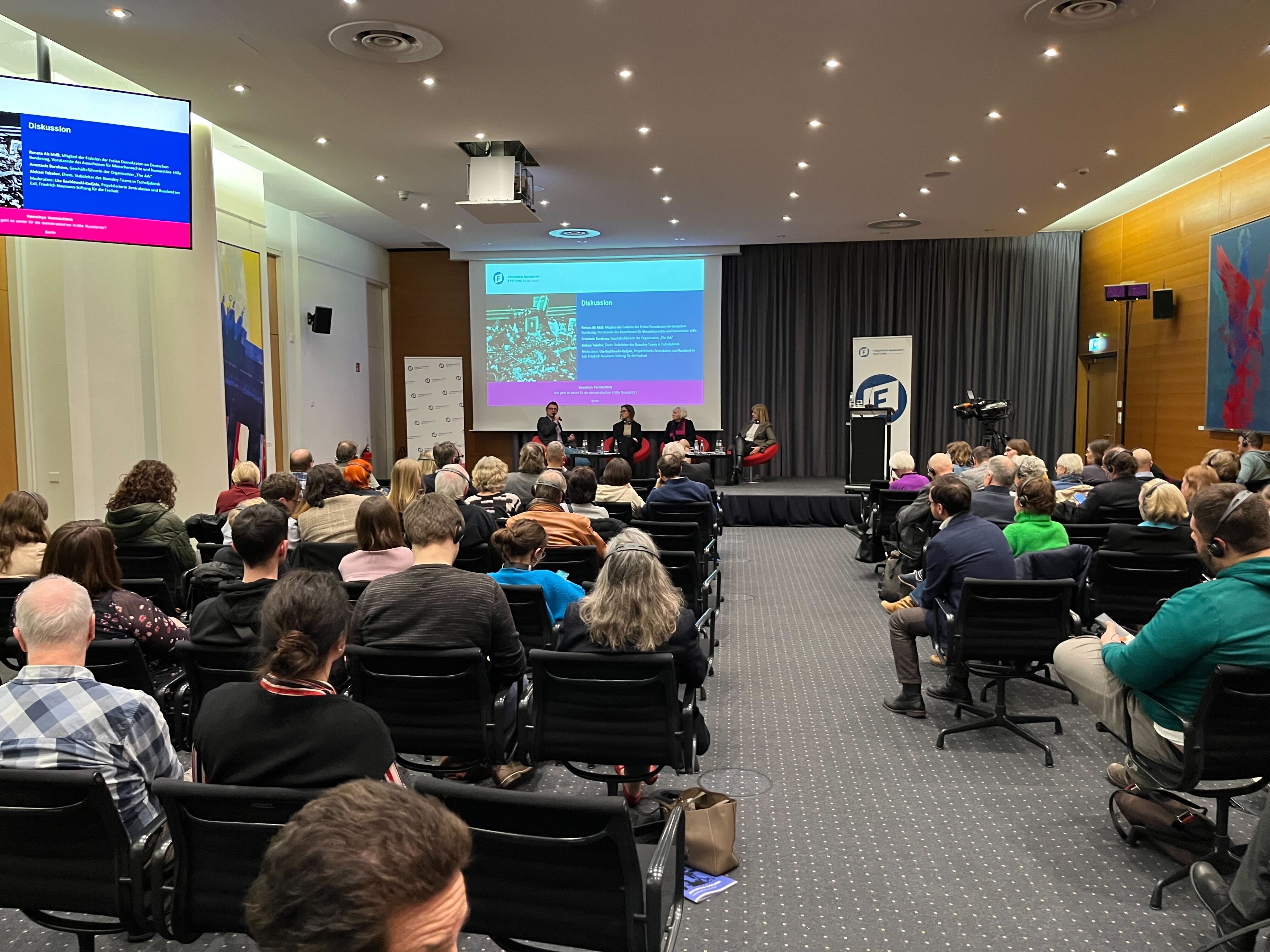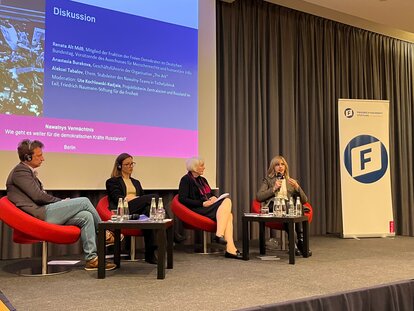Russia
Navalny's Legacy and the Future of Democratic Forces in Russia

On February 16, the leader of the Russian opposition, Alexey Navalny, died in prison under mysterious circumstances. This event received global media attention. Alexey had inspired millions of Russians with hope for a democratic future and had established a successful network of headquarters nationwide, posing a significant challenge to the Kremlin's power monopoly in Russia. Recognizing the threat to his authority, Putin systematically targeted Navalny's network and the opposition figure himself. The designation of Navalny's headquarters as extremist organizations and their subsequent shutdown occurred well before the elections. Putin's apparent strategy to eliminate his rival failed when Navalny not only survived poisoning, but also resumed his fight for a democratic Russia by returning back home. On February 16, just a month before the elections, Putin resorted to a drastic measure he could not accomplish years ago by eliminating Navalny in a bid to destroy the hopes of millions of Russians for a brighter future in Russia. However, did Putin truly succeed in extinguishing the last hopes of Russians and dismantling the remaining democratic forces in Russia post-Navalny's demise? The participants in the discussion unanimously argue otherwise.
The discussion started with Ute Kochlowski-Kadjaia - Head of FNF Russia / Central Asia Office in Exile - highlighting how Russian civil society, despite facing repressive laws and persecution, continues to thrive and implement projects. Furthermore, thousands of Russian activists and opposition members have sought refuge in Germany, where they have formed organizations to sustain their activities securely, turning Germany into a hub for the Russian civil society in exile. Many intend to return to Russia after the conditions have changed to foster a robust civil society.
Alexey Tabalov - ex-coordinator of Navalny's headquarters in Chelyabinsk agreed that thousands of Russian activists and opposition politicians found a new home in Germany. He was one of them. After Navalny's structures were announced “extremist organizations”, Tabalov faced politically motivated criminal prosecution. Because of this, he had to leave Russia back in 2021. Alexey founded an organization named "School for Conscripts," aiding young people in Russia to evade conscription. He shared personal encounters with Navalny, emphasizing how Navalny inspired hope, optimism, and belief in a democratic Russia among his followers, dispelling doubts and motivating to continue the struggle.
Next speaker Anastasia Burakova - the founder of organization Kovcheg, which helps anti-war Russians and has an audience of approximately 450,000 people - presented a report entitled "Russian Dissidents in Germany” with support from FNF. The report highlighted Germany's role in sheltering Russian dissidents and the anti-war movement amidst escalating repression in Russia following the invasion of Ukraine. Germany has accommodated over 2,300 Russians actively engaged in democratic initiatives in exile. The report outlined Kremlin's repressive laws targeting anti-war activists and the independent media, alongside detailing the varied organizations established by Russian exiles in Germany.
The conversation featured a special guest Renata Alt, member of the Bundestag in 2017, who currently chairs the Human Rights and Humanitarian Aid Committee of the Bundestag and is a full member of the Parliamentary Assembly of the Organization for Security and Cooperation in Europe (OSCE). She elaborated on Germany's support for the Russian civil society in exile, particularly emphasizing efforts in aiding families of political detainees in Russia and conducting sensitive media campaigns tailored to minimize harm and risks to the detainees. The overarching goal is to provide concerted support for political prisoners in Russia through continuous consultation with their families and legal representatives, often operating discreetly to safeguard the prisoners' well-being.

With an attendance exceeding 130 individuals, the discussion evoked considerable interest, especially regarding the post-Navalny landscape in Russia and the potential actions of the German civil society to bolster their Russian counterparts in exile. A young woman - recent immigrant, shared her impressions after visiting Navalny's grave. Despite fears, dozens of thousands of people did come to the grave with flowers that reaffirmed the ethos of fearlessness and resilience propagated by Navalny.
The attendance at Navalny's funeral defied intimidation tactics employed by the Putin regime, exemplifying a collective rejection of fear and a profound commitment to the ideals for which Navalny stood.